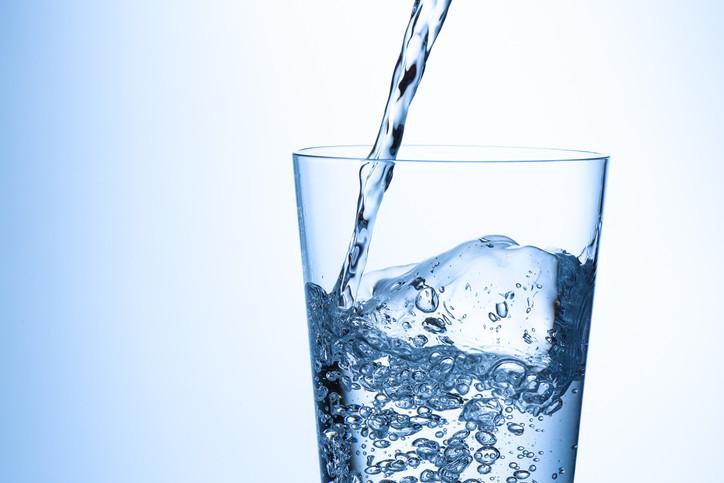Unlocking the Mysteries of Gut Health: The Remarkable Tale of Water’s Digestive Journey
Picture this: a bustling marketplace adorned with vibrant stalls, each brimming with exotic culinary delights, tantalizing your taste buds with their savory fragrances. The atmosphere sizzles with excitement as people gather, their hunger piqued by the promise of new and extraordinary flavors. But amidst this thriving food symphony, there is a silent, unsung hero that orchestrates a harmonious symphony of digestion within us. Ladies and gentlemen, let us uncover the intriguing role of water in digestion and gut health.
In the labyrinthine world of nutrition, where fads and trends cloud our understanding, water plays one of the most fundamental roles—nourishing and sustaining our bodies in ways we are only now beginning to comprehend. Though often taken for granted, its influence on our digestive systems and overall well-being is nothing short of extraordinary.
Embark with us on a journey deep into the bowels of our inner world, where our gut, teeming with populations of microorganisms, houses an intricate ecosystem unknown to many. It is within this bustling metropolis of bacteria, fungi, and viruses that the magic of digestion occurs. And water, dear reader, is the heart and soul of this bustling metropolis – regulating, supporting, and kindling the digestive flame that ensures our bodies continue to function like well-tuned symphonies.
As we delve into the depths of this article, we will encounter the wisdom of ancient cultures, eagerly embracing water’s powers and recognizing its ability to sustain their health. We will traverse the hills and valleys of cutting-edge scientific research, uncovering secrets that have eluded our ancestors for centuries.
Prepare to be astonished as we witness water seamlessly transforming food into its essential components. The miracle of digestion comes alive as enzymes dance, gastric juices churn, and peristaltic waves ripple through an intricately choreographed ballet. Through this creative odyssey, we will unravel how hydration fuels this magnificent process, ensuring its smooth continuity.
But our journey doesn’t end there. We will navigate the vast universe of our gut microbiome, awestruck by the delicate balance of bacteria that thrives within us. Amidst this remarkable diversity, water emerges as the nurturing force, supporting the health and vitality of these microscopic beings. Its essential role in maintaining the harmony of our gut ecosystem will serve as the core revelation on this imaginative exploration.
So join us, eager seekers of knowledge, as we embark on this transformative expedition into the depths of our digestive world, highlighting the integral role that water plays in our journey to optimal gut health. Together, let’s unleash the secrets we’ve long overlooked and celebrate the extraordinary gifts abundantly flowing through our veins. Let the adventure begin!
The Role of Water in Digestion and Gut Health:
Water plays a crucial role in the process of digestion and maintaining gut health. Staying hydrated is not only important for overall well-being but also for the proper functioning of our digestive system.
When we consume food, water helps in breaking down the solid particles into smaller, more easily digestible pieces. It aids in the mechanical digestion process, ensuring that the food is properly masticated and mixed with enzymes in the mouth and stomach. Additionally, water helps in the absorption and transport of those enzymes throughout the digestive tract, providing a smooth passage for nutrients to be absorbed efficiently.
Furthermore, water acts as a lubricant, aiding in the movement of food through the gastrointestinal tract. It helps soften the stool, preventing constipation and promoting regular bowel movements. Drinking an adequate amount of water throughout the day can even help alleviate symptoms of GERD (Gastroesophageal Reflux Disease) by diluting stomach acid and reducing acidity.
So, how much water should you be drinking for optimal digestion and gut health? The general rule of thumb is to consume at least 8 glasses (64 ounces) of water each day. However, the exact amount can vary depending on factors such as age, sex, activity level, and climate. Don’t forget that other fluids, such as herbal tea and soup, also contribute to your daily water intake. To ensure you’re staying hydrated, listen to your body’s cues and drink when you’re thirsty. And for those who struggle to drink enough water, here are some creative ways to increase your daily intake:
- Infuse water with fruits and herbs for a refreshing flavor.
- Set reminders on your phone to drink water at regular intervals.
- Carry a reusable water bottle with you everywhere you go.
- Include water-rich foods in your diet, such as cucumbers, watermelons, and oranges.
- Aim to finish a glass of water before each meal and snack.
Remember, water is essential for digestion and gut health, so make hydration a priority to keep your digestive system functioning optimally.
The Impact of Hydration on Digestive Processes and Nutrient Absorption
Water plays a crucial role in the digestion process, as it helps to break down food and facilitate the absorption of nutrients in the gut. When we consume food, our saliva mixes with it to form a bolus, which is then swallowed and transported to the stomach. Here, gastric juices containing hydrochloric acid and enzymes are released to further break down the food particles. However, without proper hydration, the stomach’s ability to produce these juices can be compromised, leading to poor digestion.
Furthermore, water is essential for the function of our intestines. It helps to keep the stool soft and the digestive tract lubricated, promoting regular bowel movements and preventing constipation. When the body lacks adequate hydration, the large intestine absorbs more water from the stool, resulting in hard, dry feces that are difficult to pass. Thus, drinking enough water throughout the day is crucial for maintaining optimal digestive health and preventing gastrointestinal issues.

The Importance of Water for Maintaining a Healthy Gut Microbiome
The Importance of Water in Digestion and Gut Health
Water plays a crucial role in maintaining a healthy gut microbiome and promoting optimal digestion. Adequate hydration is fundamental for numerous bodily functions, including the breakdown and absorption of nutrients. By keeping your body well-hydrated, you allow your digestive system to function smoothly, ensuring that food can be properly digested and nutrients effectively absorbed.
Here are some key reasons why water is essential for your gut health:
- Improved Digestion: Water helps break down food, making it easier for your gastrointestinal system to extract nutrients. It assists in the smooth movement of digested material through the intestines, preventing constipation.
- Enhanced Nutrient Absorption: Staying hydrated allows your body to transport vital nutrients throughout the digestive system more efficiently, ensuring they are absorbed into the bloodstream and utilized by your body’s cells.
- Balance Microbial Composition: Proper hydration creates an environment in the gut that supports the growth of beneficial bacteria. These friendly microbes play a significant role in maintaining gut health and contribute to overall well-being.
Remember, water is not only important for quenching your thirst but also vital for nourishing your gut microbiome. Embrace hydration as one of your health priorities to promote proper digestion and foster a thriving gut environment!

Key Strategies for Optimal Water Intake to Support Digestion and Gut Health
Water plays a crucial role in maintaining optimal digestion and promoting gut health. Adequate hydration is essential for the proper functioning of the digestive system. Here are some key strategies to ensure you’re drinking enough water to support your digestion and promote a healthy gut:
-
Listen to your body: Pay attention to your body’s signals of thirst and drink water whenever you feel thirsty. Thirst is a clear indication that your body needs hydration, so make it a habit to keep a water bottle handy throughout the day.
-
Hydrate before meals: Drinking a glass of water before each meal can help prepare your digestive system for the upcoming food intake. This not only aids in the breakdown and absorption of nutrients but also helps prevent overeating by creating a sense of fullness.
-
Sip during meals: While it’s not recommended to chug water during meals as it can dilute stomach acids, taking small sips throughout your meal can facilitate the digestion process. It helps to moisten food, making it easier to swallow and allowing efficient absorption of nutrients.
-
Consider warm water and herbal teas: Warm water and herbal teas can have a soothing effect on the digestive system. They can help relax the stomach muscles and promote healthy bowel movements. Experiment with different herbal teas like ginger, peppermint, or chamomile to find what works best for you.
-
Stay hydrated during exercise: Physical activity increases fluid loss through sweat, so it’s important to replenish these fluids by drinking water before, during, and after your workout. Aim to drink around 8 ounces of water every 15-20 minutes during exercise to prevent dehydration.
Remember, maintaining optimal water intake is vital for supporting digestion and gut health. By incorporating these strategies into your daily routine, you can ensure your body remains well-hydrated, promote smooth digestion, and experience the benefits of a healthy gut.
Maintaining Adequate Water Balance: Practical Tips for Healthy Hydration
Water is not only essential for overall hydration, but it also plays a crucial role in maintaining a healthy digestive system and gut. Adequate water balance is necessary to ensure proper digestion and absorption of nutrients, as well as to support the overall health of our gut microbiome. Here are some practical tips to maintain a healthy water balance and promote optimal digestion and gut health.
-
Stay hydrated: The most obvious tip, but often overlooked. Make sure to drink enough water throughout the day to stay adequately hydrated. Aim for at least 8 glasses of water, or around 2 liters, per day. Remember, other fluids like herbal tea or fruits and vegetables with high water content can also contribute to your hydration.
-
Drink water before meals: Drinking a glass of water before a meal not only helps with hydration but also aids in digestion. It prepares your stomach for food and helps to kickstart the digestive process. It can also help prevent overeating by giving you a feeling of fullness. So, make it a habit to have a glass of water 30 minutes before your meals to support your digestive system.
Incorporating these simple tips into your daily routine can go a long way in maintaining optimal water balance, supporting digestion, and promoting a healthy gut. Remember, a well-hydrated body is a happy and healthy one!
Concluding Remarks
As we bid farewell to our exploration of the fascinating role of water in digestion and gut health, we find ourselves submerged in a sea of knowledge. Like a serene river that carves its way through a diverse landscape, water has proven to be the liquid lifeline that nourishes and supports our intricate digestive system.
From the moment we embark on our culinary journey, water becomes the silent hero behind every bite we take. It generously assists in breaking down food, allowing our bodies to extract the precious nutrients hidden within. Like an unassuming magician, it conjures the perfect environment for enzymes to perform their spellbinding dance, catalyzing the intricate reactions that drive our digestion forward.
But water’s role extends far beyond managing mechanical breakdowns. It quenches the thirst of our gut, ensuring proper hydration that facilitates the smooth transport of food through the digestive tract. It’s as if water holds the gentle hand of the churning waves, guiding food along its remarkable passage, all while nourishing the delicate balance of our gut flora.
In this watery symphony, our gut health takes center stage. Water acts as the conductor, orchestrating the harmonious interplay between good bacteria and our immune system. Its hydration game keeps the gut environment hospitable to friendly microorganisms, while maintaining a vigilant defense against potential invaders.
So, dear reader, as we conclude this exploration of water’s profound influence on digestion and gut health, let us raise a glass in appreciation of this unsung hero. Whether it flows crystal clear from a pristine mountain spring or cascades from the tap of our humble abode, water is the gift that keeps our digestive system humming along like a beautifully orchestrated melody.
May we never underestimate the power of this life-giving elixir and may it forever quench the thirst of our understanding in the intricate dance of digestion and gut health. As the currents of knowledge continue to ebb and flow, let us remain ever grateful for the sustaining force that water brings to our remarkable bodies.
